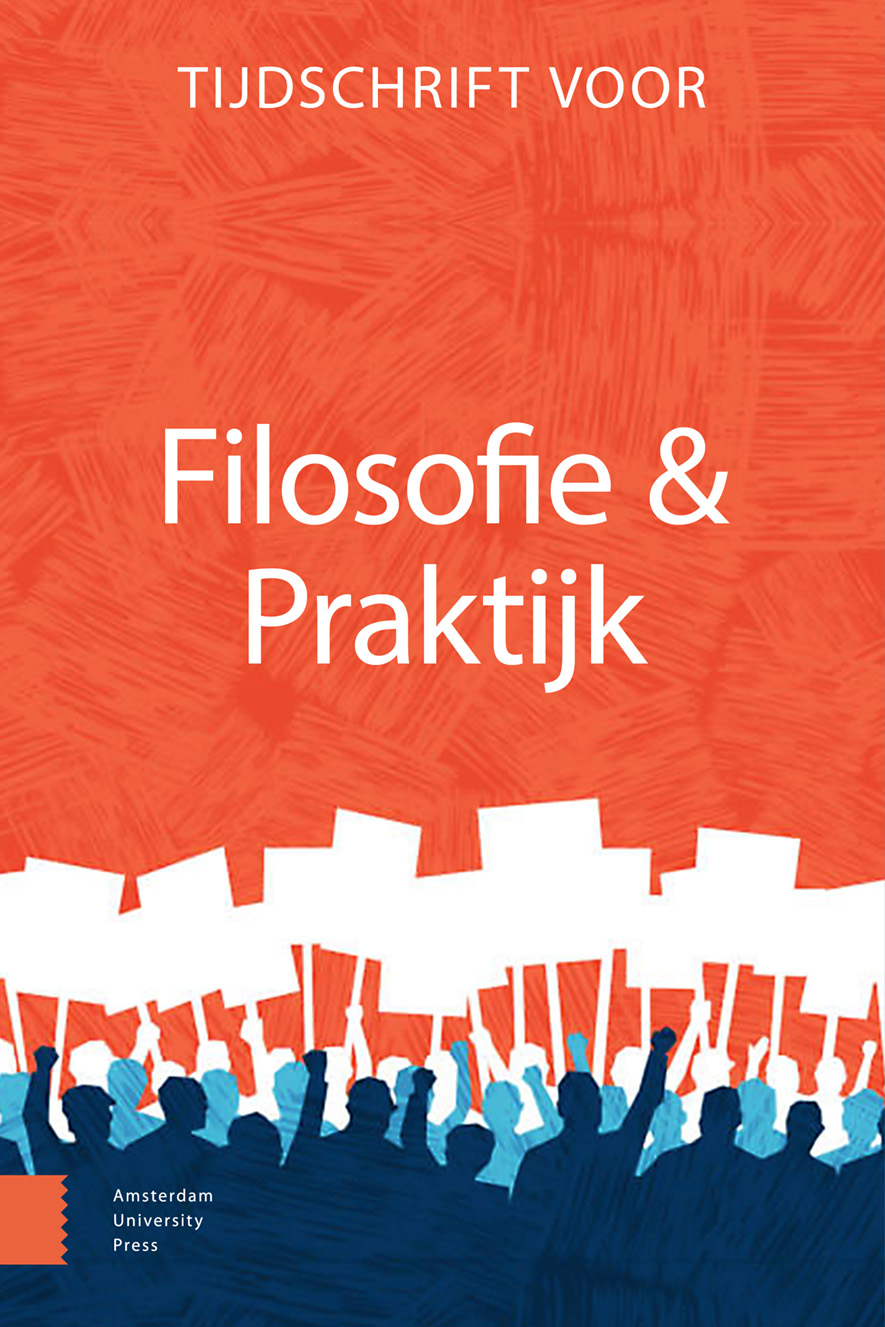- Home
- A-Z Publicaties
- Filosofie & Praktijk
- Previous Issues
- Volume 44, Issue 2, 2023
Filosofie & Praktijk - Volume 44, Issue 2, 2023
Volume 44, Issue 2, 2023
- Inleiding
-
- Artikelen
-
-
-
Toekomstverkenning De Goede Burger. Burgerschap in ethisch perspectief. Ter Inleiding
Meer MinderDoor Heleen TorringaAbstract“With me individually things are going well, with us collectively things are going poorly.” These are the words of Paul Schnabel, former head of the Social Cultural Planning Office (SCP). Dutch citizens are worried. There are concerns about income, politics, immigration, about climate, housing, social behavior. Individuals are distinctly negative about politics and politicians. About their own individual lives, people are satisfied. Concerns like these of Dutch citizens prompted the organization of the Future-exploration ‘The Good Citizen. Citizenship in Ethical Perspective’ by the Association of Ethicists in the Netherlands (VvEN). On May 12, 2023, this symposium took place at Erasmus University Rotterdam.
-
-
-
-
Uit de toon, in het debat
Meer MinderDoor Danielle AretsAbstractThese days, increasing voices are calling for a ban on public debate. Debate is said to increase differences and act as a divisive societal factor. A recent report by the Sociaal Cultureel Planbureau (2022) indicates that most Dutch people are concerned about polarization and the hardening of the political and public debate. In this essay, however, Danielle Arets argues that we should embrace debate; we have lost the ability to disagree appropriately. To revitalize the debate, Arets argues that we need to redesign the public debate and look for ways of deliberation that especially involve the arts.
-
-
-
Goede burgers vormen op een goede manier: het gevaar van indoctrinatie in een liberale democratie
Meer MinderDoor Nynke van UffelenAbstractCitizenship education aims to shape students as ‘good citizens’. Citizenship education is a normative endeavour, and therefore it is vital to critically reflect on its goals and methods. The research question1 is as follows: How can we educate people as ‘good citizens’ in a morally right way? To answer this question, I uncover first which assumptions underly the image of a ‘good citizen’. This is done by establishing which minimum requirements the continuation of democracy demands, and by studying the European Commission’s formulation of the ‘good citizen’ and its underlying notion of democracy. Next, I critically reflect on how students are shaped as ‘good citizens’ through citizenship education. This lays bare an underlying tension between liberal democracy and citizenship education that can be described as the danger of indoctrination. Inspired by Jürgen Habermas’ discourse ethics, this article proposes a way out, namely obligatory philosophy education for all students.
-
- Minima Philosophica
-
-
-
Alex S. en de Coöperatie Laatste Wil: zelf beschikken over het levenseinde van een ander1
Meer MinderDoor Ton VinkAbstractIn 2013 the Cooperative Last Will was launched with the objective of making “a dignified self-chosen death available for everyone over the age of 18, without the involvement of any other person.” In 2015 this was changed slightly, omitting the age of 18 on paper – presumably a bit too confrontational after all – and replacing “without the involvement of any other person” by “without any checks by any other person.” The latter change is understandable, because such “involvement of any other person” turned out to be not only necessary, but by now widespread practice. This practice of assisting with suicide and supplying lethal medication without any checks was recently tested by the courts in the first of a series of lawsuits: the Alex S. case. The judge ruled on July 18, 2023, and Alex S. was sentenced to 3.5 years in prison, of which 1.5 years suspended.
-
-
- Artikelen
-
-
-
Duurzame ontwikkeling als moderne utopie. Balanceren tussen hoop en haalbaarheid
Meer MinderAuteurs: Ben Dankbaar, Raphael Smals & Geert VissersAbstractSustainable development as a modern Utopia. Utopia has the double meaning of a desirable society and an unattainable ideal. We explore different versions of utopia that appeared in the literature over time and suggest that sustainable development can be considered as a modern utopia. The practical implications of this perspective are similar to those drawn in earlier cases: it is more important to take steps in the desired direction than to dwell in despair on the unattainability of it all.
-
-
-
-
Het gender-experiment
Meer MinderDoor Martin HarlaarAbstractA large-scale medical and social experiment is taking place in the Western world, of which girls and young women in particular are the victims. No one came up with this experiment. It is the result of developments that started more than half a century ago and that have converged in recent years. In this article I will try to outline some of those developments and their consequences. The gender experiment can be carried out because more and more value is attached to feelings and less and less to facts. Are you biologically a girl, but do you think you would be happier as a boy? The medical world is ready to help you and the legislator is benevolent. The field of tension that exists between the right to physical self-determination on the one hand and understanding and compassion on the other hand is given far too little thought and discussion.
-
-
-
Onder historici. Geschiedwetenschap en historisch onrecht
Meer MinderDoor Cees MarisAbstractIs the search for truth of historical science compatible with a moral evaluation of historical events? What should a historian think of the Dutch colonial past including slavery? Pure historical science is based on facts, which does not allow for normative judgements. Historians are, however, open to additional social functions of historiography, such as coming to terms with slavery history. To this end, the historian poses the moral question of guilt. However, pure historiography cannot justify the moral values against which the past should be tested. This is where a normative political-philosophical history of ideas can provide a solution.
-
- Boekbespreking:
-
- Signalementen
-
Most Read This Month


